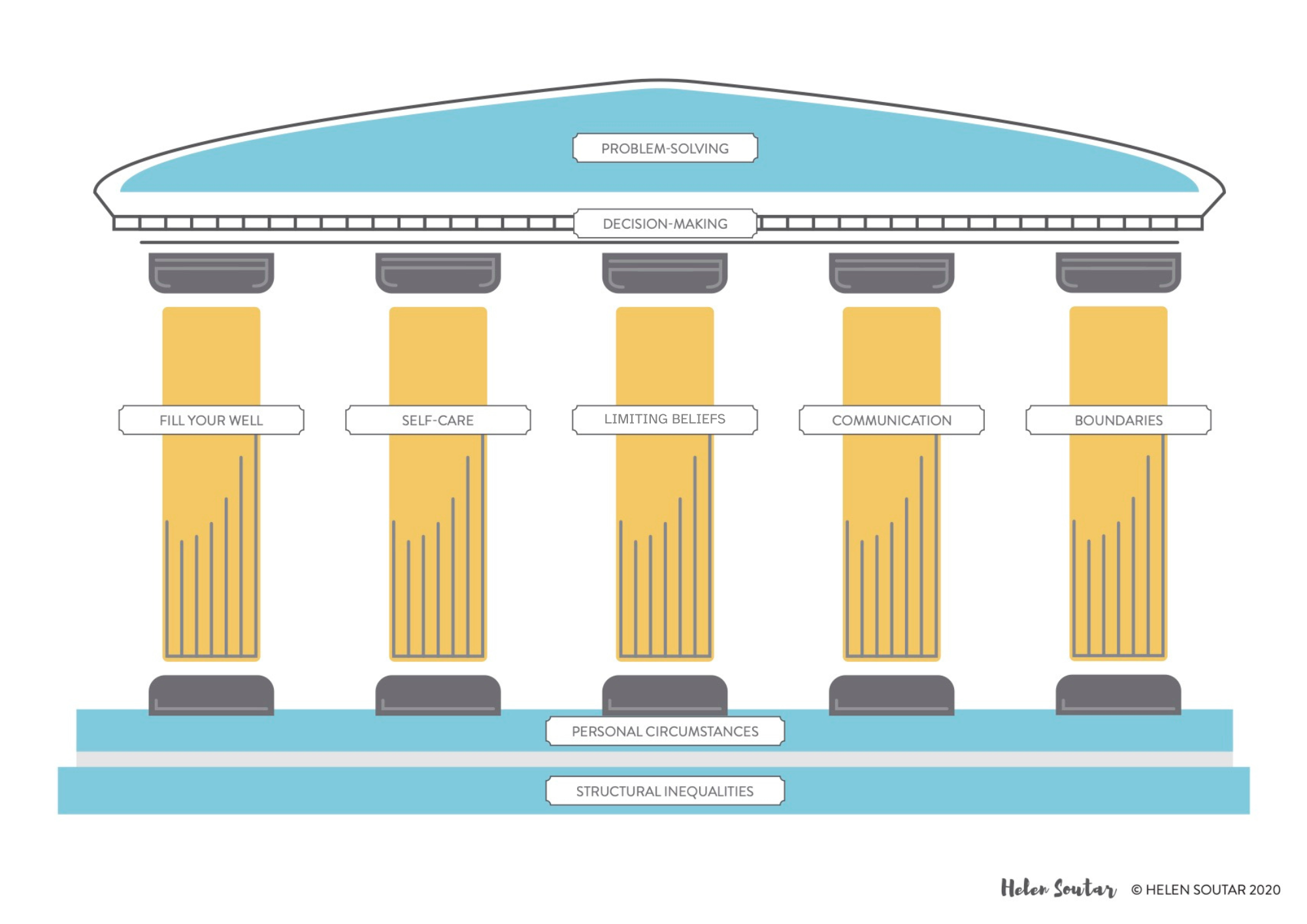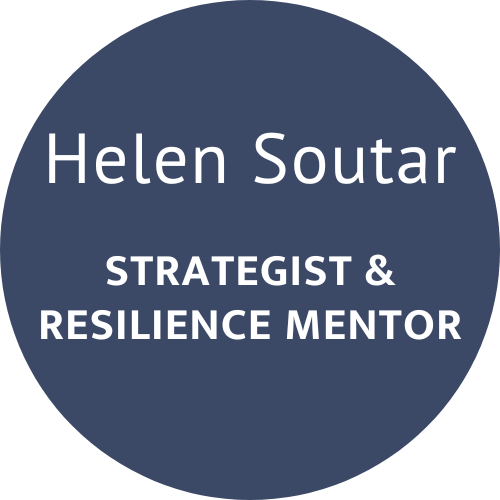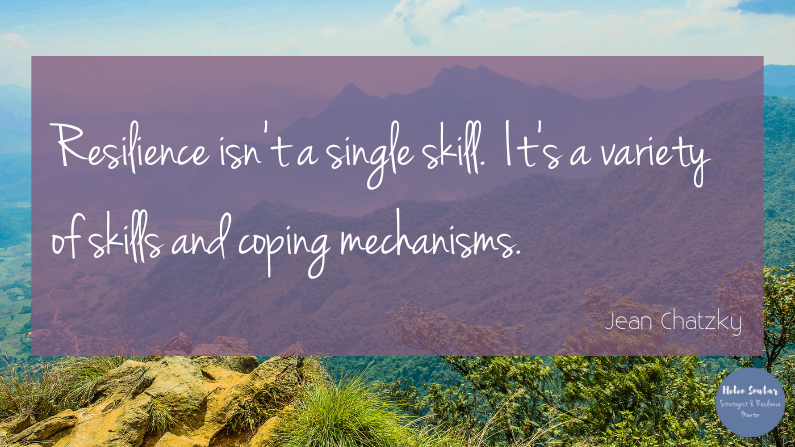The Resilience Framework: Building Skills for a Stronger Life
Resilience isn’t about being tougher or simply enduring more. It’s a set of skills and habits that help you navigate life’s challenges, recover from setbacks, and make decisions that align with your goals. The resilience framework provides a clear way to understand how these elements fit together.
At its core, the framework shows how foundational skills like dealing with limiting beliefs and setting boundaries support your ability to handle challenges and thrive.

Understanding the Resilience Framework
The resilience framework consists of three key layers:
1. The Foundation: Your personal circumstances and external factors.
- This includes your physical health, financial stability, and access to resources, as well as structural inequalities that can impact your ability to cope.
- These elements set the stage for how easily you can build and apply resilience skills.
2. The Pillars: Core resilience skills, built in the following order:
- Filling Your Well: Ensuring you have the physical and emotional resources to sustain yourself.
- Strategic Self-Care: Long-term planning to align your life with your values and goals.
- Limiting Beliefs: Identifying and challenging internal thoughts that hold you back.
- Communication: Expressing your needs clearly and effectively.
- Boundaries: Protecting your time, energy, and emotional health by setting and maintaining limits.
3. The Roof: Problem-solving and decision-making.
- These are the ultimate outcomes of resilience. When the foundation is strong and the pillars are in place, you can make better decisions and solve problems more effectively.
Why the Framework Matters
Many people try to improve their problem-solving skills or decision-making without addressing the pillars that support them. This can lead to frustration when they struggle to maintain focus, manage emotions, or set priorities. The resilience framework highlights the importance of strengthening the core skills first.
For example:
- Without filling your well, you’re burnt out, exhausted, and lacking in patience, tolerance, and capacity.
- Without strategic self-care, you find yourself constantly reacting to life’s demands, with no time to plan or align your actions with your values.
- Without tackling your limiting beliefs, your ability to quieten the doubts in your head, the negative judgments that tell you you’re not good enough, diminishes.
- Without communication, misunderstandings and unresolved tensions build up, leaving you feeling disconnected and unheard.
- Without boundaries, you may overcommit and lack the energy to make clear-headed decisions.
By focusing on the pillars, you create the stability needed for long-term growth.
How to Build Your Resilience Using the Framework
- Assess Your Foundation:
- Recognise any external challenges that might be impacting your resilience, such as financial stress or lack of support. Give yourself grace and don’t compare yourself to others.
- Strengthen the Pillars:
- Choose one skill to focus on at a time. For example:
- If boundaries are a struggle, practice saying no to one small request this week.
- If you find it impossible to speak up for yourself or navigate conversations that involve conflict, start by identifying the specific outcome you want to achieve. Then, rehearse how you’ll express your needs in simple, clear language. Practice saying it out loud or writing it down first to build confidence. When the time comes, focus on staying present and grounded by pausing to breathe before responding.
- Enjoy the Roof Skills:
- Once your pillars feel stronger, you’ll naturally find that your problem-solving and decision-making improve. This happens because the pillars provide the clarity, confidence, and energy needed to handle challenges effectively.
The Benefits of a Resilient Life
When you apply the resilience framework, you’ll notice:
- More Clarity: Decision-making becomes easier when you’re not overwhelmed by stress or overcommitment.
- Greater Confidence: Each skill you strengthen builds your ability to handle challenges.
- Improved Relationships: Boundaries and communication lead to healthier, more respectful connections.
- Sustainable Growth: With a strong foundation and pillars, you can tackle bigger challenges without burning out.


I’ll be thinking about these points for a while.